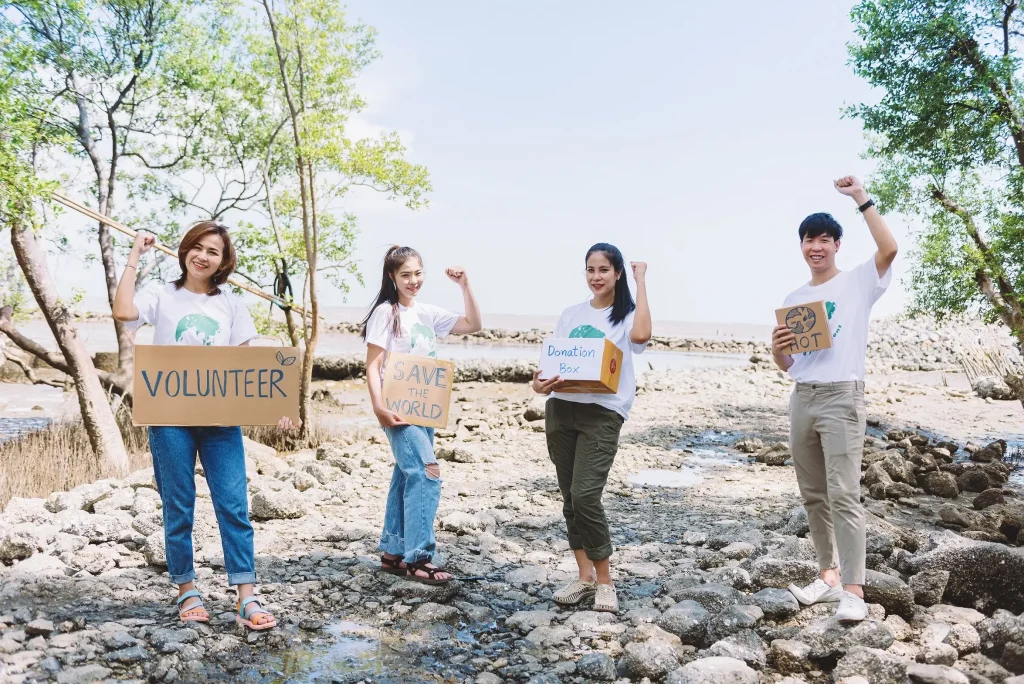Traveling can be an enriching experience. But it comes with responsibilities.
Being a responsible tourist helps protect the places we love. Tourism impacts the environment, cultures, and local economies. Being mindful of our actions while traveling can make a big difference. Respecting local customs, reducing waste, and supporting local businesses are small steps that matter.
This guide will help you understand how to travel responsibly. By making thoughtful choices, you can enjoy your trip while also benefiting the places you visit. Let’s explore the ways to become a more responsible tourist. Your journey can be enjoyable and sustainable.
Research Your Destination
Traveling is an amazing way to see the world, but it’s important to be a responsible tourist. One of the best ways to ensure you are respectful and mindful of the places you visit is to research your destination. Knowing a bit about the local culture and customs can make your trip more enjoyable and memorable. It can also help you avoid any unintentional faux pas. Here are some tips on how to be a more responsible tourist by researching your destination.
Learn Local Customs
Every place has its own unique customs and traditions. Taking the time to learn about these can help you blend in better and show respect to the locals. For example, in Japan, it’s customary to bow when greeting someone, while in many Middle Eastern countries, you should use your right hand for eating and greeting as the left hand is considered unclean. Knowing these small details can make a big difference in how you’re perceived.
Here are some ways to learn about local customs:
- Read travel guides or blogs
- Watch travel documentaries or YouTube videos
- Ask friends or family who have visited the destination
- Join travel forums or social media groups
Understand Cultural Norms
Cultural norms can vary greatly from one country to another. What is considered polite in one culture might be seen as rude in another. For instance, tipping is expected in the United States but can be considered offensive in Japan. Understanding these norms can prevent awkward situations and help you connect better with the locals.

Here’s a quick table to illustrate some cultural norms from different countries:
| Country | Norm |
|---|---|
| Japan | Remove shoes before entering homes |
| France | Say hello (Bonjour) when entering shops |
| India | Use both hands to give and receive items |
| Brazil | Arrive fashionably late to social gatherings |
Remember, researching your destination isn’t just about logistics and sights to see. It’s also about understanding and respecting the people and their way of life. So, before you pack your bags, take some time to learn about the local customs and cultural norms. Your efforts will be appreciated and your travel experience will be all the richer for it.
Respect The Environment
Being a responsible tourist is not just about respecting local cultures and traditions; it also means taking steps to protect the environment. By making conscious choices, you can reduce your environmental footprint and ensure that the beauty and resources of your travel destinations are preserved for future generations. Here are some practical tips to help you respect the environment while exploring new places.
Avoid Single-use Plastics
Single-use plastics are one of the biggest threats to our environment. They are convenient, but they cause long-term harm. Think about it: a plastic bottle you use for just a few minutes could take hundreds of years to decompose. Instead, carry a reusable water bottle. Many hotels and tourist spots offer water refill stations. Not only will this reduce waste, but it will also save you money in the long run.
Consider other items as well:
- Use a reusable shopping bag for your souvenirs.
- Pack a set of travel utensils to avoid using disposable cutlery.
- Say no to plastic straws; if you need one, carry a metal or silicone straw.
By making these small changes, you contribute to the larger goal of reducing plastic waste. Plus, you might inspire other travelers to do the same!
Stay On Marked Trails
Venturing off marked trails might seem adventurous, but it can harm the ecosystem. Plants and wildlife are often fragile, and straying from designated paths can lead to soil erosion, damage to vegetation, and disturbances to animal habitats. Stick to the trails provided—they are there for a reason.
Here’s why staying on the trail matters:
- Protects Native Plants: Many plants are delicate and can be easily destroyed by foot traffic.
- Prevents Erosion: Trails are designed to handle the impact of hikers; going off-trail can lead to increased erosion.
- Wildlife Safety: You are less likely to disturb wildlife when you stay on the path.
Remember, those trails were created to give you the best views and experiences without compromising the environment. So, enjoy the journey and let nature thrive.
Being a responsible tourist doesn’t have to be hard. With a few mindful choices, you can make a big difference. Happy travels!
Support Local Economies
Being a responsible tourist means making choices that benefit the places you visit. One of the best ways to achieve this is by supporting local economies. By shopping at local markets and eating at local restaurants, you help the community thrive. This can make your travel experience more authentic and memorable.
Shop At Local Markets
Local markets are a treasure trove of unique finds. You can buy handmade crafts, fresh produce, and local specialties. These purchases directly support local artisans and farmers. This boosts their income and helps them sustain their businesses. Plus, you get to take home one-of-a-kind souvenirs. It is a win-win situation for both you and the locals.
Eat At Local Restaurants
Dining at local restaurants offers a taste of the region’s culture. You get to enjoy traditional dishes made with locally sourced ingredients. Your money goes directly to local chefs and restaurant owners. This supports their livelihoods and helps preserve culinary traditions. Eating local also reduces your carbon footprint. The ingredients travel shorter distances, which is better for the environment.
Be Mindful Of Wildlife
Being a responsible tourist means respecting the wildlife you encounter. Many animals face threats from tourism. You can help protect them by being mindful of your actions. Respect their habitats and follow guidelines to keep them safe.

Avoid Animal Attractions
Animal attractions often harm animals. Avoid places that offer interactions with wildlife. This includes riding elephants, swimming with dolphins, or taking photos with tigers. These activities can stress and harm the animals.
Maintain Safe Distances
Always keep a safe distance from wild animals. Approaching too closely can be dangerous. It can also disturb the animals and their natural behaviors. Use binoculars or a camera with a zoom lens to observe them from afar.
Reduce Carbon Footprint
Traveling is a fantastic way to explore new places, meet new people, and create unforgettable memories. However, our travel habits can have a significant impact on the environment. One of the best ways to be a more responsible tourist is by working to reduce your carbon footprint. By making small, conscious choices, you can help protect the planet while still enjoying all the wonders it has to offer.
Use Public Transportation
One simple yet effective way to reduce your carbon footprint is by using public transportation. Buses, trains, and trams are not only cost-effective but also significantly less polluting compared to private cars or taxis. Here are a few tips to make public transportation work for you:
- Research: Before you arrive at your destination, look up the local public transportation options. Familiarize yourself with routes, schedules, and ticketing systems.
- Plan Ahead: Plan your journeys in advance to avoid unnecessary trips. This will save you time and reduce your environmental impact.
- Be Flexible: Sometimes, walking or cycling can be a viable alternative to short public transport rides. Not only will you save energy, but you’ll also get to see more of the local sights!
Using public transportation can also provide a more authentic travel experience. You’ll have the chance to interact with locals, observe daily life, and perhaps even pick up a few words in the local language. It’s a win-win situation for both you and the environment.
Consider Eco-friendly Accommodations
Another way to minimize your carbon footprint is by choosing eco-friendly accommodations. These establishments prioritize sustainability and often implement various green practices to reduce their environmental impact. Here are some things to look for when booking your stay:
- Green Certifications: Look for hotels and hostels that have green certifications such as LEED, Green Key, or EarthCheck. These certifications indicate that the property meets specific environmental standards.
- Energy Efficiency: Choose accommodations that use energy-efficient lighting, heating, and cooling systems. Solar panels and energy-saving appliances are also good indicators of a green property.
- Water Conservation: Opt for places that have water-saving measures in place, such as low-flow showerheads and toilets, or rainwater harvesting systems.
- Waste Reduction: Select accommodations that practice waste reduction through recycling programs, composting, and minimizing single-use plastics.

By staying at eco-friendly accommodations, you support businesses that are committed to sustainability. You’ll also be encouraging other travelers to make responsible choices, creating a positive ripple effect in the tourism industry.
In conclusion, reducing your carbon footprint while traveling doesn’t have to be difficult. With a little bit of planning and mindfulness, you can make a big difference. So, the next time you pack your bags, remember these tips and travel responsibly. Happy travels!
Respect Local Communities
Show respect to local communities by learning about their customs and traditions. Support local businesses and be mindful of your actions. This promotes positive relationships and sustainable tourism.
Being a responsible tourist means respecting the local communities you visit. Show appreciation for their culture and way of life. Your actions can help preserve their traditions. Below are some ways to show respect.
Ask Before Taking Photos
Always ask permission before taking photos of local people. It shows respect. Some people may not want their pictures taken. Respect their wishes. This small act can build trust.
Participate In Community Activities
Get involved in local community activities. Attend local festivals and events. This helps you understand their culture better. Your participation also supports the community. It can be a fun and enriching experience.
Stay Informed
Traveling is a wonderful way to explore new cultures and landscapes. But being a responsible tourist means staying informed about your destination. Knowledge helps you respect local customs and environments. It also ensures your safety during the trip.
Follow Travel Advisories
Before traveling, check travel advisories from trusted sources. These advisories provide valuable information about safety and health risks. They can also inform you about any political unrest or natural disasters. Staying updated on these advisories helps you avoid trouble spots and plan a safer trip.
Keep Updated On Local Issues
Local issues can impact your travel experience. Research the current events and local news of your destination. This knowledge can help you understand the local culture better. It also shows respect for the people who live there. Being aware of local issues helps you avoid sensitive topics in conversations. It can also guide you in making ethical travel choices.
Travel With Purpose
When we travel, we often seek adventure, relaxation, and a break from our daily routines. But have you ever thought about traveling with a purpose? By being a responsible tourist, you can make a positive impact on the places you visit and the people you meet. It’s all about making mindful choices and considering the broader effects of your actions. Let’s dive into some ways you can travel with purpose.

Engage In Volunteer Tourism
Volunteering while traveling is a fantastic way to give back to the community. Imagine spending a day teaching English to kids, helping to build homes, or even participating in environmental conservation projects. Not only do you get to see new places, but you also get to make a difference.
Here’s how you can start:
- Research: Look for reputable organizations that offer volunteer opportunities.
- Skills: Think about what skills you can offer. Are you good with kids? Do you have construction experience?
- Commitment: Be sure you are committed to the cause. Volunteering requires dedication and effort.
It’s a win-win situation – you get to experience the local culture in a more meaningful way, and the community benefits from your help. Plus, you might make some lifelong friends along the way. Who wouldn’t want that?
Choose Sustainable Tour Operators
When planning your trip, it’s important to choose tour operators that prioritize sustainability. This means they care about the environment and the well-being of local communities. But how do you find these operators?
Here are some tips:
| Criteria | What to Look For |
|---|---|
| Environmental Practices | Do they minimize waste and use eco-friendly products? |
| Community Engagement | Do they support local businesses and employ local guides? |
| Certifications | Look for certifications from reputable organizations like Green Globe or EarthCheck. |
By choosing sustainable tour operators, you support businesses that are doing their part to protect the planet. It’s a small step, but it makes a big difference. Remember, our choices matter.
So, next time you pack your bags, think about how you can travel with purpose. Your journey can be more than just a holiday – it can be a chance to do good and make the world a better place.
Frequently Asked Questions
How Can We Be Responsible Tourists?
Be respectful of local cultures and traditions. Minimize waste and use eco-friendly products. Support local businesses and communities. Conserve water and energy. Avoid disturbing wildlife and natural habitats.
How To Be A More Responsible Traveler?
Respect local cultures, and follow environmental guidelines. Support local businesses and reduce waste. Conserve water and energy. Respect wildlife and natural habitats. Research and follow local laws and customs.
How To Ethically Be A Tourist?
Respect local culture, customs, and traditions. Support local businesses and artisans. Minimize environmental impact by reducing waste. Follow laws and guidelines. Be mindful of wildlife and natural habitats.
How Can The Tourism Industry Be More Responsible?
The tourism industry can be more responsible by promoting eco-friendly practices, supporting local communities, reducing waste, conserving resources, and respecting wildlife.
Conclusion
Being a responsible tourist benefits everyone. Respect local cultures and environments. Make sustainable choices. Support local businesses. Leave no trace behind. Travel with an open heart and mind. Small actions make a big difference. Every step counts towards preserving our beautiful world.
Let’s make travel a force for good. Happy and mindful travels to all!



